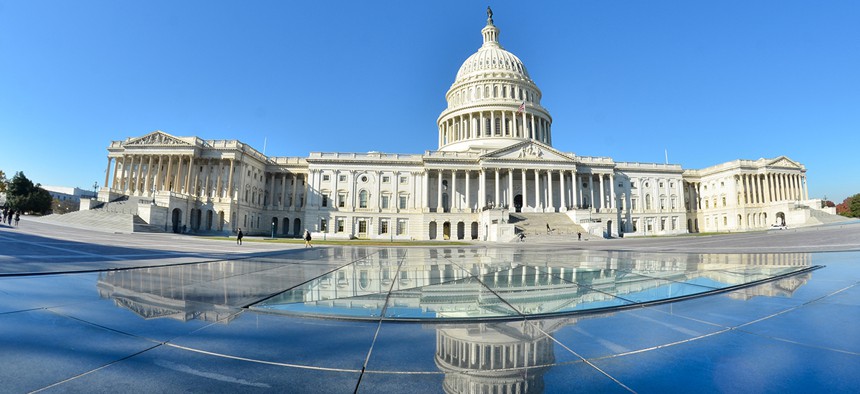Hacking the Capitol: All the Ways Tech Can Help Congress Work Smarter

Orhan Cam/Shutterstock.com
The second Congressional Hackathon, held Friday at the Capitol, produced some big, creative ideas and even some prototypes.
A platform that would allow the public to contribute to congressional hearings in real-time.
A track-changes type of tool that could show each and every change lawmakers make to a bill during the legislative process.
A digital petition system for each congressional district.
The second Congressional Hackathon, held Oct. 23 at the Capitol, produced some big, creative ideas and even some prototypes -- all designed to leverage technology to improve the way Congress works.
The bipartisan event was hosted by House Majority leader Kevin McCarthy, R-Calif., and Minority Whip Rep. Steny Hoyer, D-Md. In addition to members of Congress and their staff, about 200 people attended the event, including open government and transparency advocates and software engineers, said Steve Dwyer, senior policy adviser and digital director for Hoyer.
In remarks during the event, McCarthy said innovative technology could lead to greater accountability in Congress.
It “lets us know whether we're right or wrong, whether we're doing something well or not, instead of waiting for some GAO study to come back to us one year later,” he said, referring to the Government Accountability Office.
The topics tackled by the teams included legislative data, constituent casework and services, modernizing congressional hearings, and public engagement, among other areas.
Most teams simply discussed their ideas and mapped them out on whiteboards, but some groups went further.
A team led by software engineers from Quorum, an online legislative strategy platform, nearly finished developing a tool to convert draft bills from PDFs to an editable text format.
Congress has made progress implementing three of the five recommendations made by participants at the first Congressional hackathon four years ago, according to Hoyer.
Lawmakers have taken steps to release legislative data in machine-readable formats and made improvements to livestreams of congressional committee hearings.
Congress has also worked to bolster dialogue with the developer community, Hoyer said, adding that he plans to host additional hackathons in the future.
“Modernizing government technology is an ongoing project, and it is one that we must pursue with greater urgency,” Hoyer said.
(Image via Orhan Cam/Shutterstock.com)





